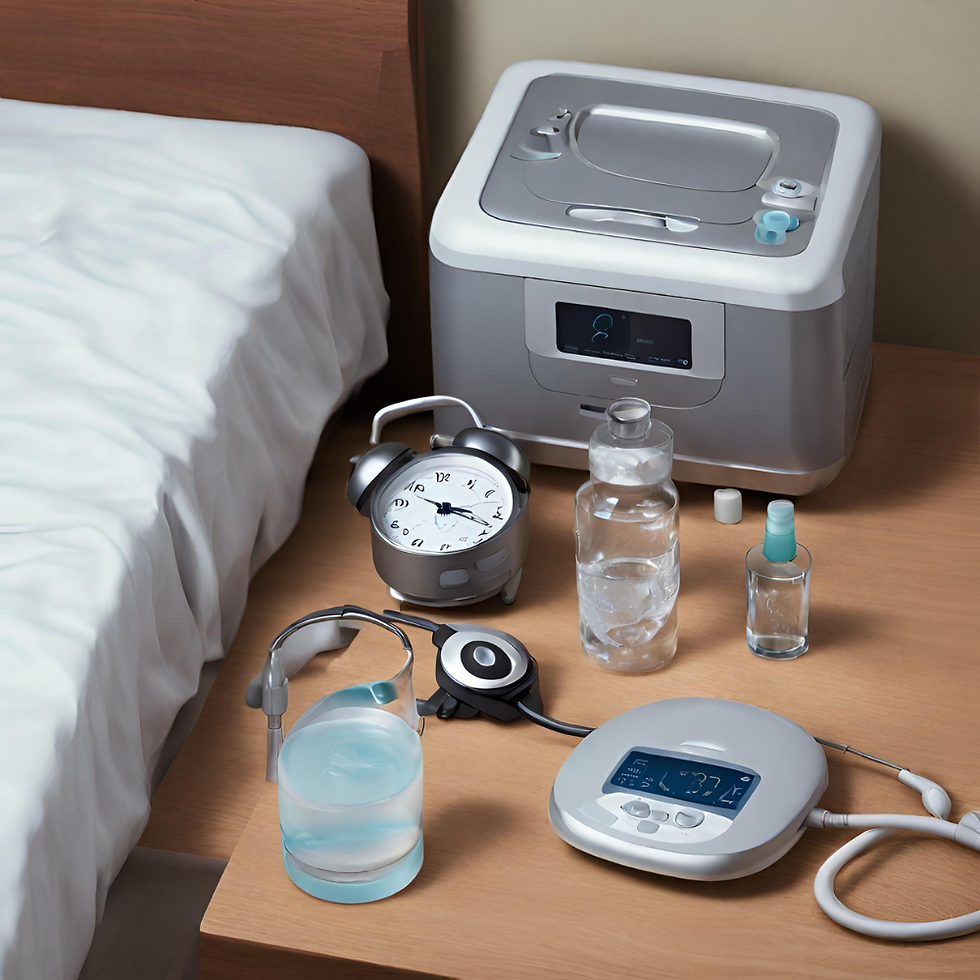Sleep and aging
- William Ferland
.png/v1/fill/w_320,h_320/file.jpg)
- Oct 11, 2023
- 4 min read
Sleep, this precious natural resource, evolves throughout our lives. As children, we could sleep for hours, lulled into a deep, restorative sleep. As teenagers, our sleep schedules were often disrupted by late nights and lazy mornings. As we age, sleep can become more fragmented, shallower and more elusive. In this article, we will explore age-related changes in sleep, their consequences, and solutions to ensure quality sleep for older adults.
1. Sleep changes with age
With age, it is common to notice several changes in our habits and the quality of our sleep. First, total sleep time tends to decrease. An older person may need fewer hours of sleep than a young adult. In addition, deep sleep, this essential phase for physical and mental recovery, reduces with age. Nocturnal awakenings become more frequent, often due to physiological needs or pain.
The very structure of sleep changes. The percentage of time spent in REM sleep (the dream phase) decreases, as does deep slow-wave sleep. These changes may explain why many older adults complain of lighter or more fragmented sleep.

2. The risks of sleep deprivation in the elderly
Sleep disturbances can have more serious consequences in older people than in younger people. Lack of sleep or poor quality sleep can worsen certain medical conditions, such as hypertension, and can increase the risk of falls, a major concern for this age group. Additionally, sleep deprivation can exacerbate symptoms of mental disorders such as depression or anxiety, which may already be present due to other age-related factors.

Daytime sleepiness, often caused by a poor night's sleep, can also interfere with a person's ability to function normally during the day, limiting their independence and quality of life. This drowsiness can also increase the risk of accidents, especially if the elderly person still drives a vehicle.
3. The consequences of poor quality sleep on the health of older people
Poor quality sleep isn't just a temporary nuisance; it can have substantial impacts on the health and well-being of older people. Cognitive deterioration is one of the most alarming consequences. Memory, concentration and information processing ability can all be affected, increasing the risk of developing cognitive disorders, including dementia and Alzheimer's disease.

On a physical level, insufficient sleep can exacerbate the symptoms of chronic illnesses such as arthritis, heart disease and diabetes. The immune system is also affected, making the individual more vulnerable to infections and diseases. Disrupted sleep may also be linked to mood disorders, reduced stress tolerance, and a general decline in emotional well-being.
4. Solutions to improve sleep in the elderly
Faced with these challenges, there are practical strategies to help older adults improve the quality and duration of their sleep. The sleeping environment is crucial. Ensuring a dark, quiet and cool bedroom, along with a comfortable mattress and pillows, can make a significant difference. Avoiding blue light from screens before bed and encouraging exposure to natural light during the day can also help regulate the sleep-wake cycle.

Adopting a regular routine can also be beneficial. Going to bed and waking up at regular times, even on weekends and holidays, can help synchronize the body's internal clock. Limiting daytime naps, although counterintuitive, may also improve nighttime sleep quality.
Nutrition also plays a role. Avoiding caffeine and heavy meals before bed, and opting for lighter foods can help you fall asleep faster and sleep more restfully. Finally, although exercise is essential for overall good health, it is best avoided right before bed to give the body time to relax and prepare for rest. 5. Medical treatments for sleep disorders in the elderly
Modern medicine offers a range of solutions to treat sleep disorders in older adults. One of the first steps is usually a polysomnographic evaluation, more commonly known as a sleep study, which can accurately diagnose various disorders like sleep apnea. Depending on the results, devices such as CPAP (continuous positive airway pressure) machines may be recommended to ensure regular breathing during sleep.

Hypnotic medications, such as benzodiazepines, may be prescribed to help with falling asleep, although long-term use is generally not recommended due to possible side effects. Supplements with melatonin, a natural sleep hormone, may also be suggested to help regulate the circadian cycle.
It is also essential to address medications that older adults are already taking. Some, like antihypertensives or antidepressants, can affect sleep. It is therefore crucial to work closely with a doctor to evaluate all medications and their possible influence on sleep.
Sleep, this often neglected vital function, deserves our full attention, particularly as we age. The quality of our sleep directly influences our quality of life, our mental, physical and emotional health. Understanding the challenges that aging poses to sleep, as well as the strategies and treatments available to improve rest, is crucial to ensuring optimal well-being for older adults.
We all have to deal with the effects of time at one time or another. But with a proactive and informed approach, we can ensure that our nights are as peaceful and restorative as our days are rich and fulfilling. After all, a good night's sleep is one of life's simple but essential pleasures, whatever our age. Take care of your sleep, and it will take care of you. Good night and sweet dreams.



Comments